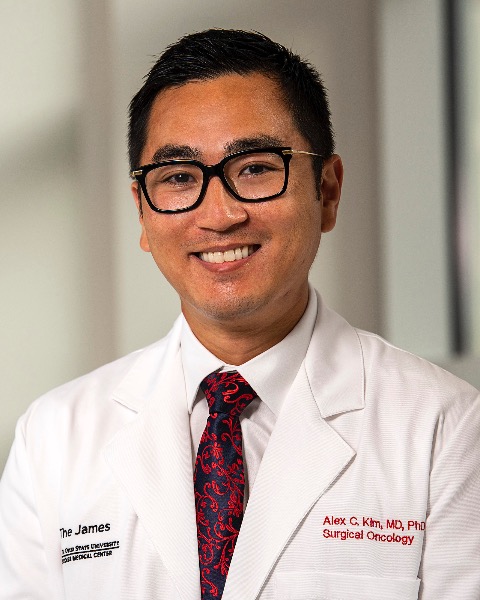Disparities in Surgical Oncologic Care
non-CME
P65: A National Assessment of Differences in Gastric Cancer Outcomes Among Asian Ethnic Subgroups

Thuy Tran, MD
Assistant Professor of Surgery
University of California, Irvine
Orange, California, United StatesDisclosure information not submitted.

Thuy Tran, MD
Assistant Professor of Surgery
University of California, Irvine
Orange, California, United StatesDisclosure information not submitted.

Jingjing Yu, MD
Resident
University of California, Irvine Medical Center
Anaheim, California, United StatesDisclosure information not submitted.

Tracey Pu, MD
Research Fellow
National Cancer Institute | National Institutes of Health, United StatesDisclosure information not submitted.
- AB
Andrew M. Blakely, MD
Program Director
Surgical Oncology Program, National Institutes of Health, United StatesDisclosure information not submitted.

Alex C. Kim, MD, PhD
Assistant Professor of Surgery
The Ohio State University Wexner Medical Center, The James Cancer Hospital and Solove Research Institute
Columbus, Ohio, United StatesDisclosure information not submitted.

Rebecca A. Snyder, MD, MPH (she/her/hers)
Associate Professor of Surgery
UT MD Anderson Cancer Center
Houston, Texas, United StatesDisclosure information not submitted.

Maheswari Senthil, MD
Chief of Surgical Oncology
University of California, Irvine
Irvine, California, United StatesDisclosure(s): No financial relationships to disclose
.jpg)
Oliver S. Eng, MD (he/him/his)
Associate Professor of Surgery
University of California, Irvine, United StatesDisclosure(s): Tempus Labs, Inc.: Speaker (Ongoing)
Poster Presenter(s)
Author(s)
Gastric cancer disproportionally affects Asian and other immigrant populations from countries with a high incidence of gastric cancer. Prior studies have demonstrated a relationship between improved survival and patients of Asian descent in aggregate, but differences in outcomes among specific Asian racial subgroups have not been described. The aim of this study is to characterize and compare gastric cancer presentation, treatment, and survival among Asian subgroups within the United States.
Methods: The National Cancer Database was used to identify patients who underwent curative-intent resection for Stage I-III gastric cancer from 2004-2018. Patients were disaggregated by Asian subgroup: Chinese (CH), Korean/Japanese (KJ), Southeast Asian (SE), Pacific Islander (PI), and South Asian (SA). Patient demographics, tumor factors, and treatment features were analyzed. Overall survival (OS) was estimated using Kaplan-Meier method. Cox proportional hazard models were performed to identify factors independently associated with survival.
Results:
Overall, 4,607 patients were identified. Median follow up was 42.1 months. Asian subgroups consisted of 29.4% CH, 37.7% KJ, 19.1% SE, 3.1% PI, and 10.7% SA descent. There were 39% with AJCC Stage I, 25% Stage II, and 36% Stage III cancers. Adequate lymphadenectomy (defined as resection of >15 LN) was lowest among SE Asians (P < 0.001). SE and PI had higher rates of positive lymph nodes (CH 53%, KJ 50%, SE 62%, PI 67%%, SA 55%, P< 0.001) and positive margins (CH 11%, KJ 8.7%, SE 15%, PI 13%, and SA 11%, P< 0.001). The median OS was lowest for SE and PI patients (Figure). On multivariable analysis after adjusting for clinicopathologic factors, SE (HR 1.38, 95CI 1.14-1.68, P=0.001) and PI (HR 1.28, 95% CI 1.21-2.34, P=0.002) were associated with worse survival compared to other subgroups.
Conclusions:
Race appears associated with differences in outcomes among Asian subgroups with gastric cancer; specifically, worse overall survival was observed among Southeast Asians and Pacific Islanders. Future studies with disaggregated data are needed to further characterize the relationship of racial subgroups to health disparities and outcomes.
Learning Objectives:
- Upon completion, participants will be able to describe differences in survival based on racial and ethnic subgroups.
- Upon completion, participants will be able to identify disparities in outcomes among different Asian ethnic groups.
- Upon completion, participants will be able to define factors associated with poor survival among Asian patients with gastric cancer.
